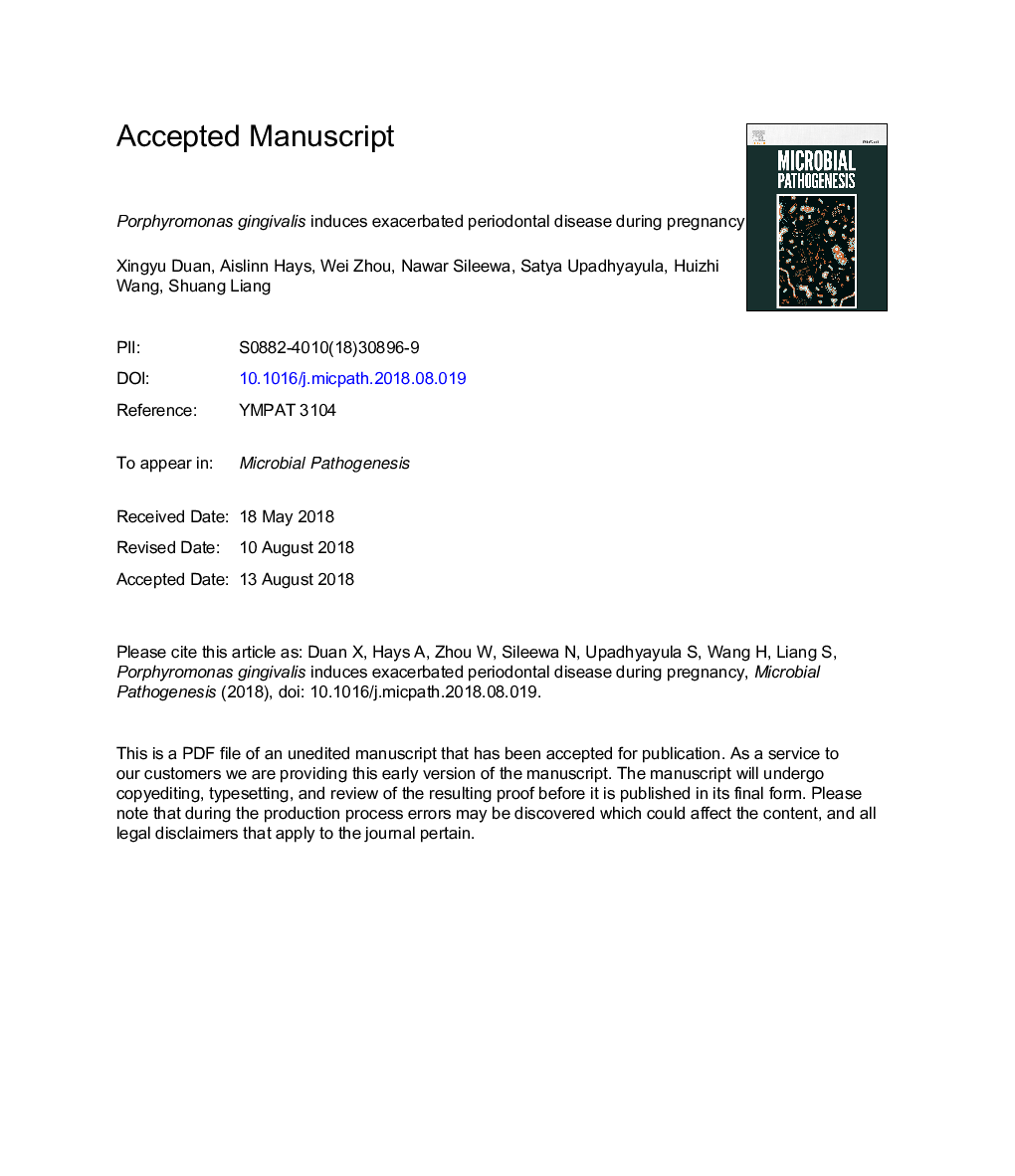| کد مقاله | کد نشریه | سال انتشار | مقاله انگلیسی | نسخه تمام متن |
|---|---|---|---|---|
| 8944982 | 1645266 | 2018 | 30 صفحه PDF | دانلود رایگان |
عنوان انگلیسی مقاله ISI
Porphyromonas gingivalis induces exacerbated periodontal disease during pregnancy
دانلود مقاله + سفارش ترجمه
دانلود مقاله ISI انگلیسی
رایگان برای ایرانیان
کلمات کلیدی
موضوعات مرتبط
علوم زیستی و بیوفناوری
ایمنی شناسی و میکروب شناسی
میکروب شناسی
پیش نمایش صفحه اول مقاله

چکیده انگلیسی
Although pregnant women are prone to gingival inflammation, its mechanism remains unclear. Animal models are ideal for investigating immunological mechanisms in the periodontal disease. A murine model for ligature-induced periodontal disease has been modified and utilized to determine the susceptibility to periodontal inflammation and tissue damage in pregnant mice. Expression of different inflammatory mediators in the gingivae was determined by quantitative real-time PCR (qPCR). Inflammatory bone loss was determined by measuring the distance from the cementoenamel junction to the alveolar bone crest (CEJ-ABC). Oral bacterial number was determined by the CFU (Colony Forming Units) count from anaerobic culture of oral swabs. In our experiments, ligation itself did not cause higher gingival inflammation and bone loss in pregnant mice than non-pregnant mice, while ligation combined with P. gingivalis infection led to increased gingival inflammation and periodontal bone loss, accompanied by lower gingival expression of anti-inflammatory cytokines in pregnant mice. Our results indicated that P. gingivalis infection was important in inducing more severe periodontal diseases during pregnancy, which might be attributed to the down-regulated anti-inflammatory mechanisms, but not be associated with higher oral bacterial burden.
ناشر
Database: Elsevier - ScienceDirect (ساینس دایرکت)
Journal: Microbial Pathogenesis - Volume 124, November 2018, Pages 145-151
Journal: Microbial Pathogenesis - Volume 124, November 2018, Pages 145-151
نویسندگان
Xingyu Duan, Aislinn Hays, Wei Zhou, Nawar Sileewa, Satya Upadhyayula, Huizhi Wang, Shuang Liang,